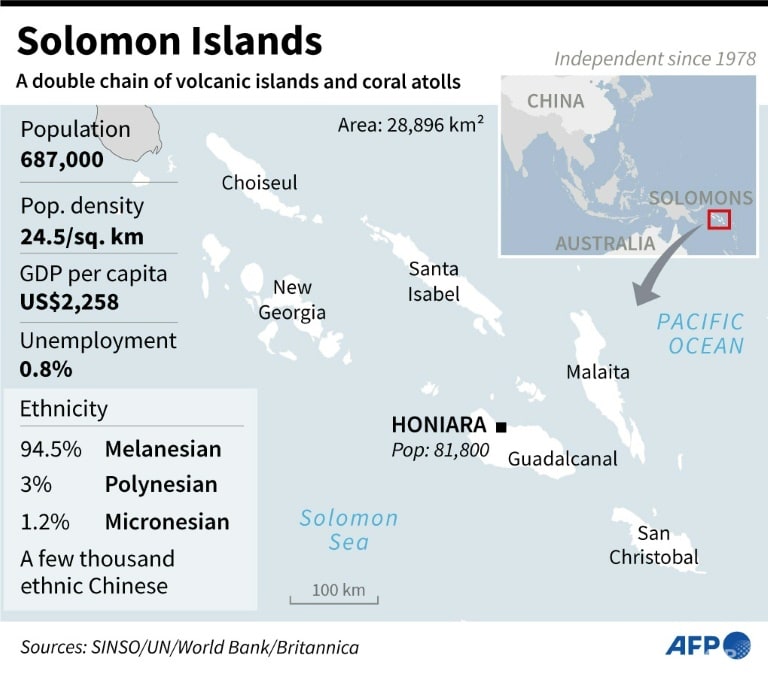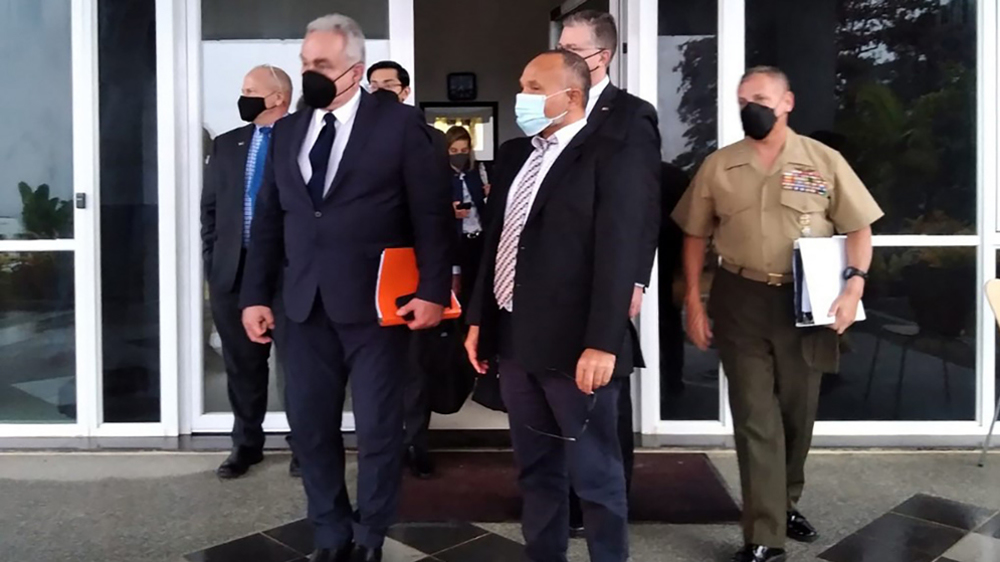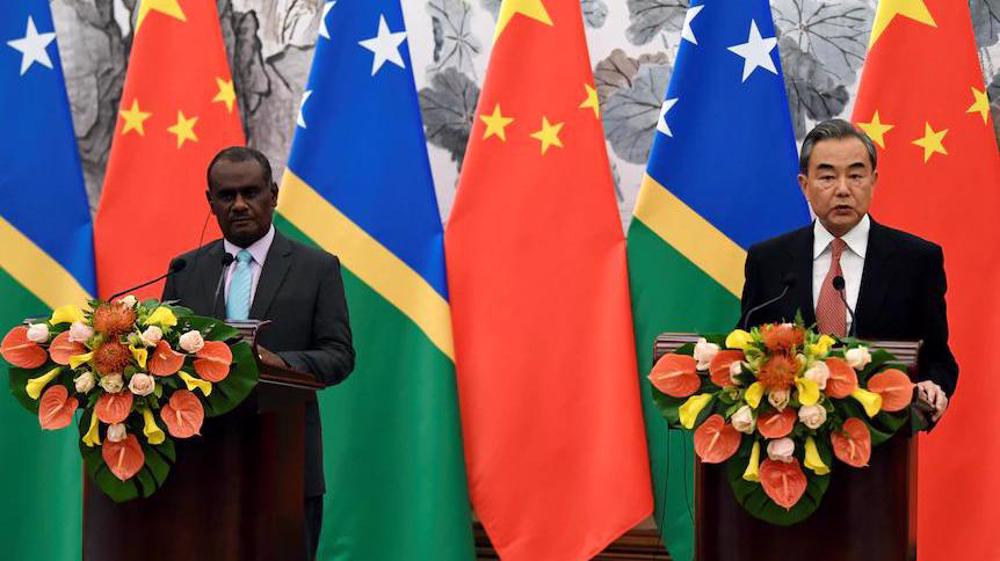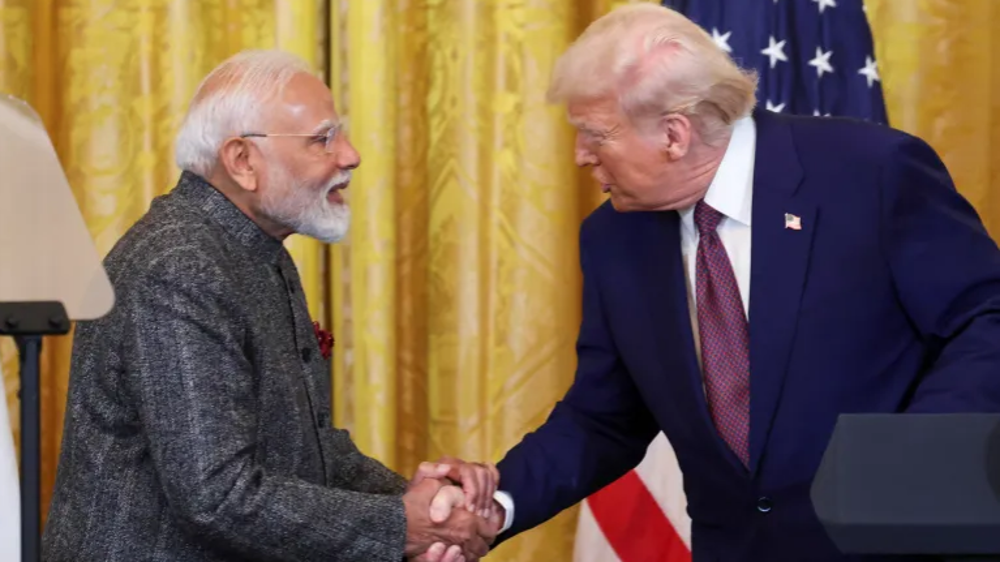US warns Solomon Islands of response over security pact with China
The Biden administration has warned the Solomon Islands that it will take action against the South Pacific nation if its new cooperation agreement with China poses a threat to US or allied interests.
According to the White House, the warning was delivered Friday directly to the country’s officials by a visiting senior US delegation that expressed concern about the security deal with China.
The delegation arrived in Honiara to hold talks with the Solomon Islands government and to pressure it over the pact.
In a statement, the White House had said its diplomatic delegation was visiting Fiji, Papua New Guinea, and the Solomon Islands this week to "ensure our partnerships deliver prosperity, security and peace across the Pacific Islands and the Indo-Pacific".
National Security Council Indo-Pacific coordinator Kurt Campbell and assistant secretary of state for East Asian and Pacific Affairs Daniel Kritenbrink led the delegation, which also included Pentagon officials.
Washington said China’s security pact with the Solomon Islands is not clear and cast doubt on Honiara officials’ claims that the deal was purely domestic.
"If steps are taken to establish a de facto permanent military presence, power-projection capabilities, or a military installation, the delegation noted that the United States would then have significant concerns and respond accordingly," according to a White House summary of the trip.
"Islands’ Prime Minister Manasseh Sogavare reiterated his specific assurances that there would be no military base, no long-term presence and no power projection capability, as he has said publicly," added in the statement.
Tensions have been running high between the island country and the West since last week after Beijing announced that it had signed an undisclosed security pact with Honiara.
The US government and its Western allies have been lobbying against China's actions on this strategic region since the Solomon Islands authorities cut ties with Taipei and announced that they would have more serious political and diplomatic relations with the Beijing government.
China has sovereignty over Chinese Taipei, and under the “One China” policy, almost all world countries recognize that sovereignty. The US, too, recognizes Chinese sovereignty over the island but has long courted Taipei in an attempt to unnerve Beijing.
The agreement dealt a blow to US efforts to move the Solomon Islands away from Beijing's orbit and use the territory as a stepping stone for Washington's military buildup in the region with the aim of containing China.

The US government and Australia, its Pacific state’s traditional ally, also have expressed deep concern over the deal that would see Beijing and Honiara working together on maintaining social order, protecting people's safety, aid, combating natural disasters, and helping safeguard national security.
Campbell said in January the Pacific was the part of the world’s most strategic land and the US and its allies Australia, New Zealand, Japan, and France needed to step up in the region.
What has caused jitters in the West, in particular, is speculation that China seeks to establish a military base in the island country.
Israel finalizes execution plans for Palestinian abductees after Knesset vote: Report
VIDEO | Press TV's news headlines
VIDEO | Pakistan mosque attack in Islamabad sparks protests in Kashmir, Kargil
Hamas condemns Israel's 'fascist settler-colonial' project aimed at annexing West Bank
Iran's Greco-Roman wrestling team wins championship title at Zagreb Open 2026
VIDEO | UK arrests Press TV contributor amid crackdown on pro-Palestine activism
VIDEO | Axis of Resistance stands as multinational front for justice
Swiss academics call for end to research treaty with Israel over Gaza genocide











 This makes it easy to access the Press TV website
This makes it easy to access the Press TV website